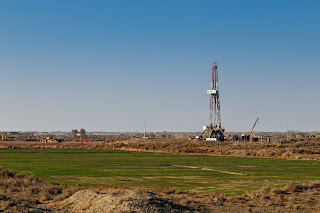How Privately Owned Shale Drillers are a Threat to OPEC
As already discussed in previous posts, the U.S. shale industry is finally gaining its strength back after months of decline. To much surprise, this resurgence is largely due to privately owned shale drillers and not the other giant corporations. This has worried OPEC as it will affect their overall market shares in the oil business.
How are these privately owned corporations usurping the U.S. oil market share from OPEC? That is what we will discuss today, but first, let's look at what OPEC is.
OPEC - Organization of the Petroleum Exporting Countries
The OPEC was established on 14 September 1960 and has continued to play a significant role in influencing the global oil prices. Currently, 13 countries are members of the OPEC, all of which have substantial oil reserves. Their mission statement is: " to coordinate and unify the petroleum policies of its member countries and ensure the stabilization of oil markets, to secure an efficient, economical and regular supply of petroleum to consumers, a steady income to producers, and a fair return on capital for those investing in the petroleum industry."
Throughout the years, OPEC has been quite controversial and has been attacked physically (towards key members) and verbally (towards the organization as a whole). Today, we won't get into those details, but perhaps we will discuss it in a different post. So how are the private shale drillers affecting this giant oil corporation?
Private Shale Drillers
In recent years "small" private shale drillers have substantially increased their rig capacity. For example, DoublePoint Energy has more rigs running throughout the Permian Shale than Chevron Corporation. Another privately-owned shale drilling company, Mewbourne Oil Corporation, has the same number of rigs as Exxon Mobile Corporation.
These major corporations have burned through more than $300 billion in capital spending above the cash generated from oil revenues, making investors extremely cautious for future productions.
As of December 2020, private drillers held half the share of the horizontal rig count. This increase in rig counts in the private sector is mostly due to the pandemic. Large companies had to show restraint and have dialed back in drilling because of the oil price collapse. Private operators' ambitious growth plans present OPEC with a wild card as prices rebound.
Most large publicly traded explorers are listening to investors' pleas and planning to keep production low to avoid huge losses like the one that occurred during the start of the pandemic. In sharp contrast, private companies are pushing to invest more in new rigs. So how does this affect OPEC?
Private Oil Production
Even though private companies have kept their plans secret, some major forecasters (like Enverus and Rystad Energy) have stated that these private corporations have a variance of 700,000 barrels a day. That is more than half of Nigeria's production, which is a member of OPEC. If private drillers keep growing at their current pace, it could ultimately mean that U.S. production ends up on the steeper end of analyst forecasts.
Private drillers are already on their way to spending $3 billion in the first three months of this year, doubling from their lowest levels of 2020. DoublePoint Energy, already expect to increase their production to 100,000 barrels a day, which is a massive increase for the private sector.
This can become increasingly worrisome for OPEC as private corporations keep expanding over the next six months to a year.
Can The Private Companies Survive?
The private companies emphasize they won't fall victim to shale's past losses because all the operational challenges have now been worked out in the major basins, making it easier to run large rig programs.
Did you enjoy this article? If so, remember to subscribe and follow our website so you can stay up to date on the latest shale and natural gas news!




